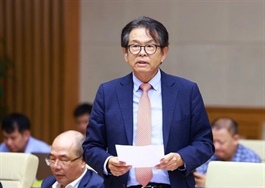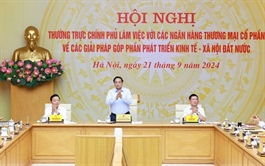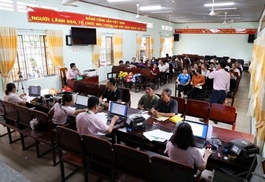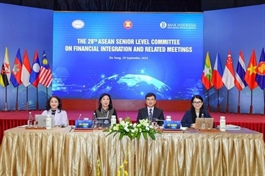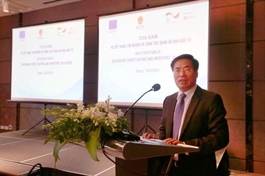Large number of insurance premiums reinsured abroad
Large number of insurance premiums reinsured abroad
Non-life insurance and reinsurance companies in Việt Nam are having to transfer a large proportion of their premiums to foreign reinsurers to ensure security, industry insiders said.
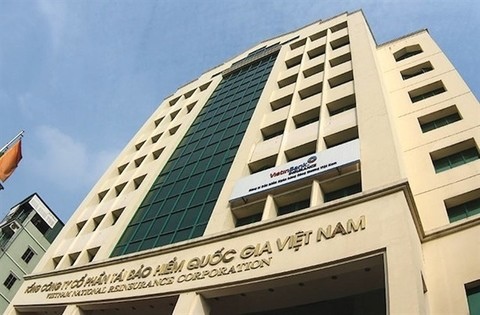
Headquarters of Vietnam National Reinsurance Corporation (Vinare). Vietnamese reinsurance companies, including Vinare, last year reinsured only VNĐ6 trillion of domestic reinsurance premiums, while they had to transfer VNĐ22 trillion of the premiums to foreign reinsurance companies. — Photo vietnambiz.vn |
According to data from the Ministry of Finance’s Insurance Supervision Agency, Việt Nam’s total insurance premium revenue in the first half of 2024 was estimated at more than VNĐ109 trillion, down 3.8 per cent over the same period.
The non-life insurance market revenue last year recorded more than VNĐ71 trillion, up about three per cent against the previous year.
According to Nguyễn Anh Tuấn, chairman of the Vietnam National Reinsurance Corporation (Vinare), about 40 per cent of the total premium revenue was from reinsurance. For the remaining 60 per cent, which came from health and motor vehicle insurance, non-life insurance companies were able to handle it themselves through reserves.
In 2023, Vietnamese companies reinsured only VNĐ6 trillion of domestic reinsurance premiums, while they had to transfer VNĐ22 trillion of the premiums to foreign reinsurance companies to ensure safety.
According to Tuấn health or motor vehicle insurance has small insurance value, ranging from several hundred million to several billion Vietnamese đồng, so local insurance companies can reinsure domestically.
Meanwhile, commercial insurance, such as for property, engineering and marine projects and construction projects or national key projects in the fields of thermal power, bridge, road and airport, often required much larger amounts of money. Therefore, most of them will have to be reinsured abroad.
However, this situation is not unique to Việt Nam, but happens in many developed countries and regions in the world.
According to Tuấn, for a developing country like Việt Nam, with GDP increasing, the transfer of VNĐ22 trillion of domestic reinsurance premiums to foreign insurers is reasonable. Domestic reinsurers cannot reinsure more to ensure risk sharing.
Tuấn recommended when reinsuring abroad, domestic reinsurance companies must choose quality and reputable partners who can pay insurance on time and in full for customers to recover production and business if losses occur.
Vinare often chooses foreign reinsurance companies which have credit ratings by S&P Global and AM Best, similar to those in the banking industry.
According to the provisions of the Law on Insurance Business, for key and large national investment projects, foreign reinsurers must have a minimum credit rating of A-.
Tuấn said that domestic reinsurance companies needed to closely monitor credit ratings of foreign reinsurers as ratings could change in response to annual financial reports.









